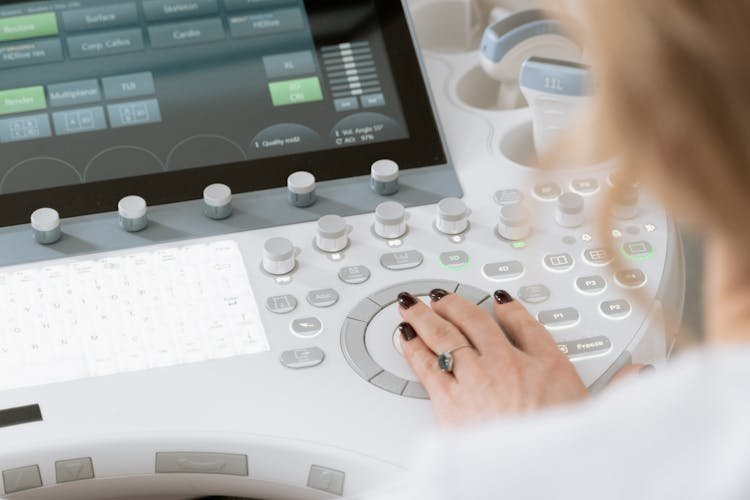How AI-Enhanced Medical Robots Are Redefining Precision in the OR
Precision and the reduction of human error are some of AI and robotics’ most valuable advantages. While these benefits are important in many use cases, few are as crucial as the medical sector. It should be no surprise that AI-guided robots are showing potential to revolutionize the operating room. The medical industry faces higher standards […] The post How AI-Enhanced Medical Robots Are Redefining Precision in the OR appeared first on AiiotTalk - Artificial Intelligence | Robotics | Technology.

Precision and the reduction of human error are some of AI and robotics’ most valuable advantages. While these benefits are important in many use cases, few are as crucial as the medical sector. It should be no surprise that AI-guided robots are showing potential to revolutionize the operating room.
The medical industry faces higher standards than most, so new technologies take a while to become common in this sector. The growth of AI surgery robots has been slow, but some models are already in use. Many others show substantial promise in their early development stages. Here’s a closer look at how these technologies could transform the industry.
Going Where Human Hands Can’t
“The most obvious advantage of AI and robots in the OR is that machines often have finer motor control than humans. That means surgery bots can work on patients without needing large, invasive cuts while reducing the risk of errors.”
Despite surgeons’ extensive training, roughly 4,000 surgical errors occur in the U.S. each year. Some of these stem from tiredness or distraction — something AI can’t experience. Others come from the difficulty of operating in tight, sensitive spaces, which smaller, more precise robotic controls make easier.
Early robotic surgery examples have resulted in fewer complications and blood loss. These robots don’t replace human surgeons entirely but use AI and robotic assistance to operate in smaller spaces with less motion as surgeons guide them. As AI improves, it could further help by recognizing emerging complications and adjusting automatically or alerting doctors to prevent further injury or mistakes.
Making Medical Implants Less Intrusive
AI-powered robots can also help outside of surgery itself. Robotic surgical implants can monitor patients’ post-operation health or administer medication over time to ensure better ongoing health. AI makes these implants less disruptive and more effective.
Unlike their industrial counterparts, these robots are typically made of materials like liquid silicone rubber, which is resistant to bacterial growth and hypoallergenic. This soft material also lets them sit in patients’ bodies without disturbing the tissue around them, preventing complications. Some even use AI to detect and move in response to changing tissue conditions to avoid scarring.
AI also lets robotic implants determine when to inject certain medications and how much of them to administer. That way, patients get the care they need, even as their bodies change. This more personalized approach to health care promotes better patient outcomes.
Enabling Remote Surgery
“One of the most exciting applications for AI-powered OR robots is remote surgery.”
Some of the same surgical robots that improve in-person surgery precision support remote operation. Hospitals can use these to bring leading medical care to more people across the world.
Remote surgery is particularly important in light of how the world will be short 10 million medical workers by 2030. With conventional methods, that means patients in some areas may be unable to access life-saving surgery without traveling, which introduces further risks. Remote-controlled robots mean experts on the other side of the world can operate on these patients to address that gap.
AI makes this technology more reliable. Lag and errors from not seeing things in person can cause potentially dangerous mistakes in remote surgery. AI can detect these issues and counteract them in real-time to prevent errors and ensure patient safety.
AI and Robotics Will Usher in a New Era of Medicine
AI-guided robots likely won’t replace human surgeons, especially anytime soon. Rather, they assist them so they can use their talents to their full potential.
As technology improves, the potential for AI and robotics in surgery will only grow. These innovations have already improved the OR in many ways despite their relative newness. It’s safe to say that this trend will continue in the future, leading to new levels of patient safety and healthcare accessibility.
Also Read The Real Impact of AI in the Workplace
The post How AI-Enhanced Medical Robots Are Redefining Precision in the OR appeared first on AiiotTalk - Artificial Intelligence | Robotics | Technology.
What's Your Reaction?












![[Computex] The new be quiet cooling!](https://technetspot.com/uploads/images/202406/image_100x75_6664d1b926e0f.jpg)








